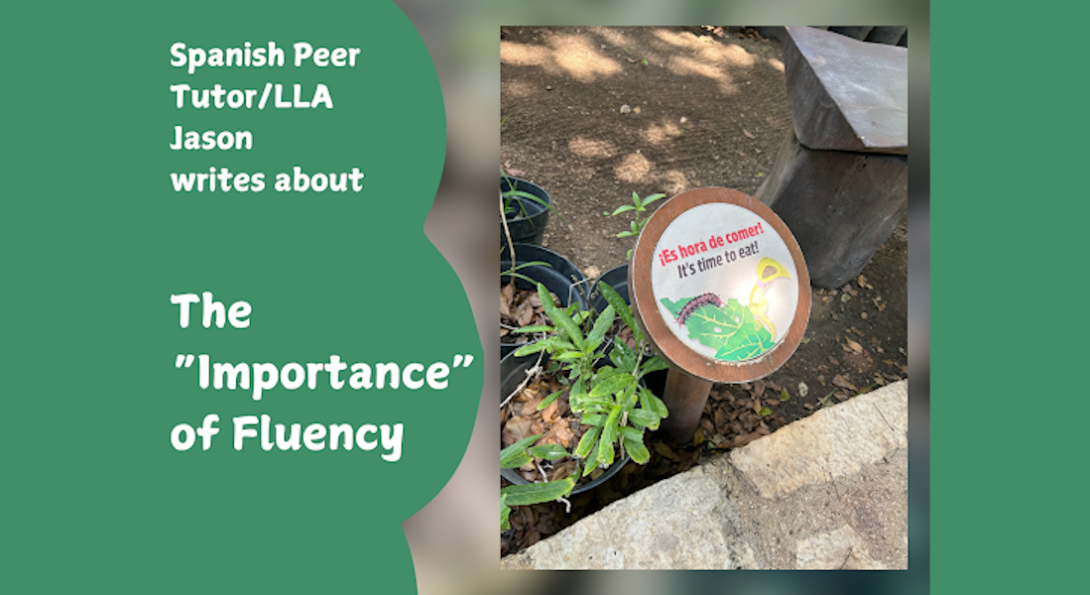21 November 2024: Spanish Tutor/LLA Jason writes on the “Importance” of Fluency

Introduction
Coming from an Asian household and obviously looking so, people are often surprised when I tell them I can speak Spanish. I only started taking it seriously these past three or so years, and it's really paid off. It's a worthy skill to have, and it's always fun to surprise people with it. It’s even more satisfying to see it pay off in a more meaningful way. It gives me a lot of pride when I can help someone in my retail job or give someone directions. Even understanding a simple joke makes me proud of how far I’ve come in my language learning journey.
But sometimes, it comes with some lofty expectations. There's still much for me to learn, but I speak it well enough to be confident in school and social situations. That being said, the binary between “fluent” and “non-fluent” has frustrated me because oftentimes, I feel like I’m neither. It’s a long journey to learning a language. I tutor Spanish and I can admit that my journey’s not close to over. There’s no singular moment someone can point to as their “‘I’m fluent” moment. It’s all based on progression. That’s why I’m not a fan of the “fluent/non-fluent” binary.
I’ve progressed enough to write essays and have conversations, but words elude me or I blank out and end up responding in English. So, when someone asks me, “Are you fluent in Spanish?” I, more often than not, find myself brushing off the question. At least until someone encourages me enough for me to say “I guess I am.” Even then, learning a language doesn’t stop at “fluency.” Even if fluency is the goal, it’s not tangible which makes it difficult to measure. I find that it more often than not discourages people who don’t believe they can become “fluent.”
“Fluent” or not, we ought to be proud of ourselves and our language journeys. Even if you can only learn one word every day in another language, that’s one more word than the day before. Fluency isn’t the be-all-end-all of language learning that many people think it is. It’s safe to assume that most people reading this are fluent in English, but you never stop learning new words. It’s a matter of progression, putting in the effort, and learning some more day in and day out. So, don’t be shy if you don’t think you’re fluent, because all that matters is that you’re more fluent than the day before.